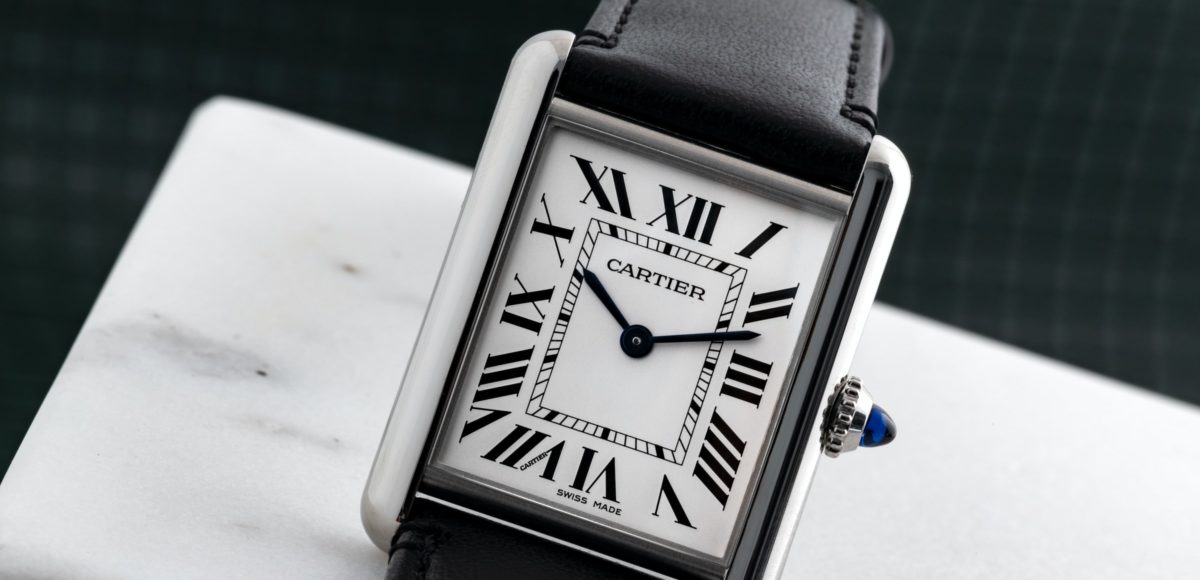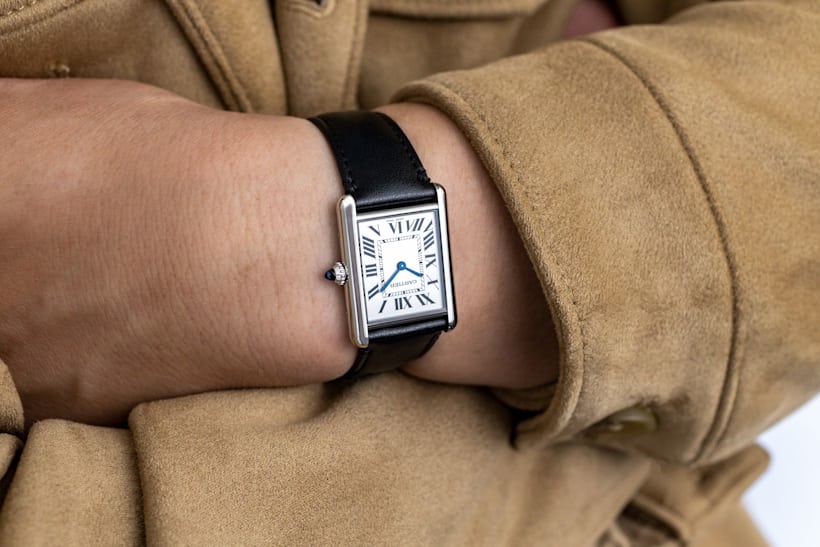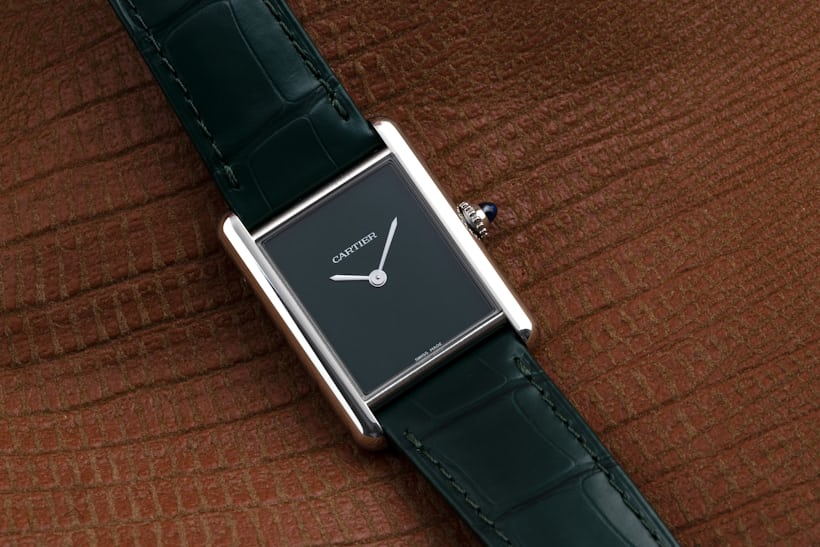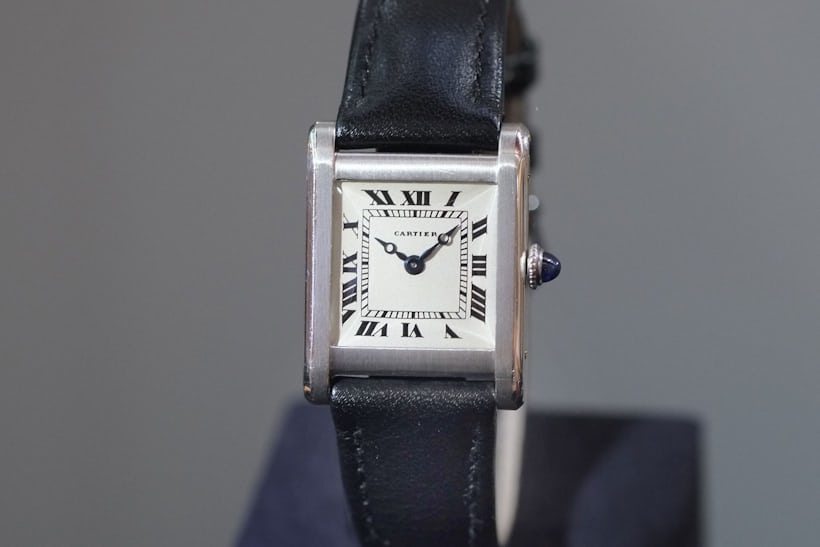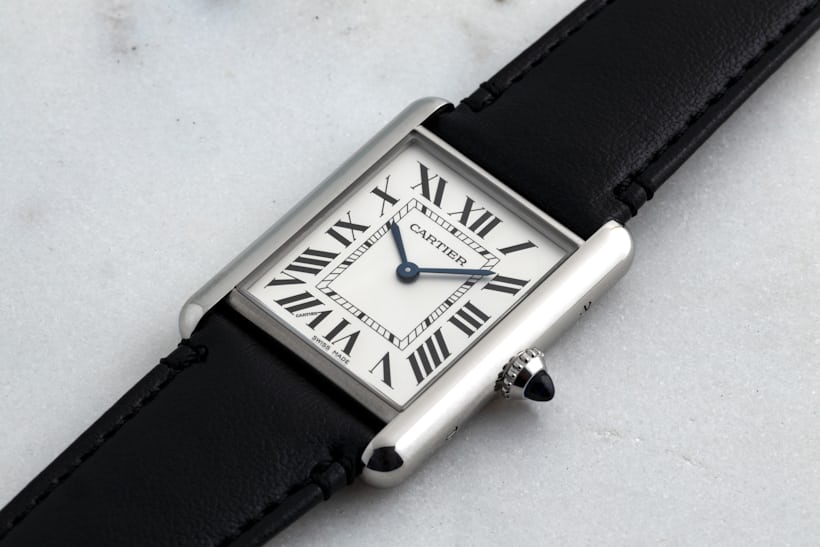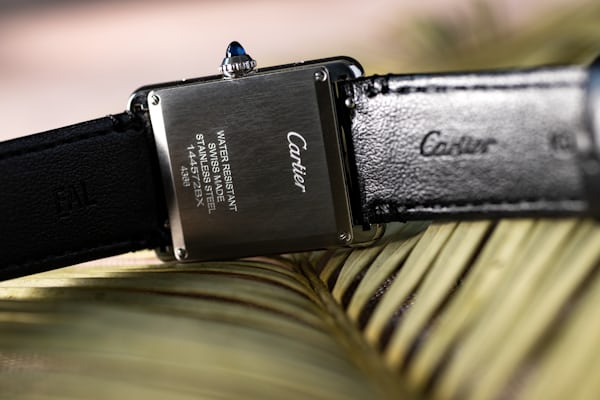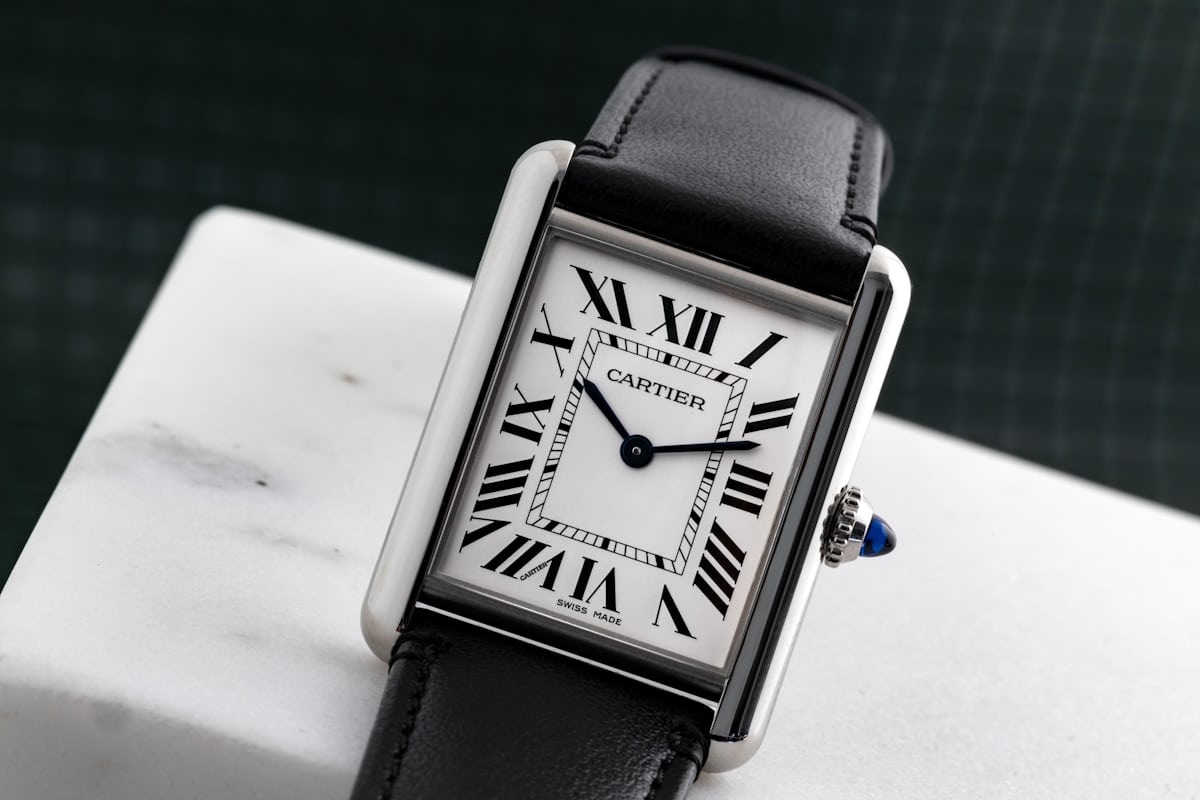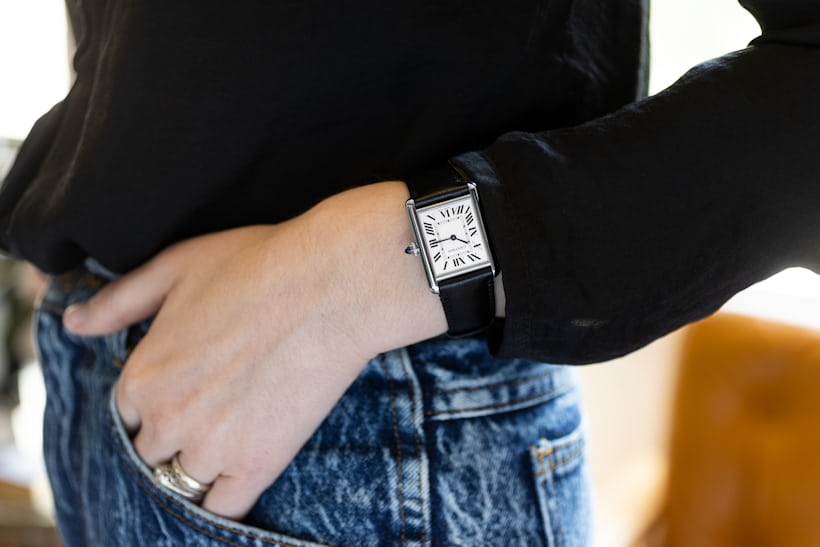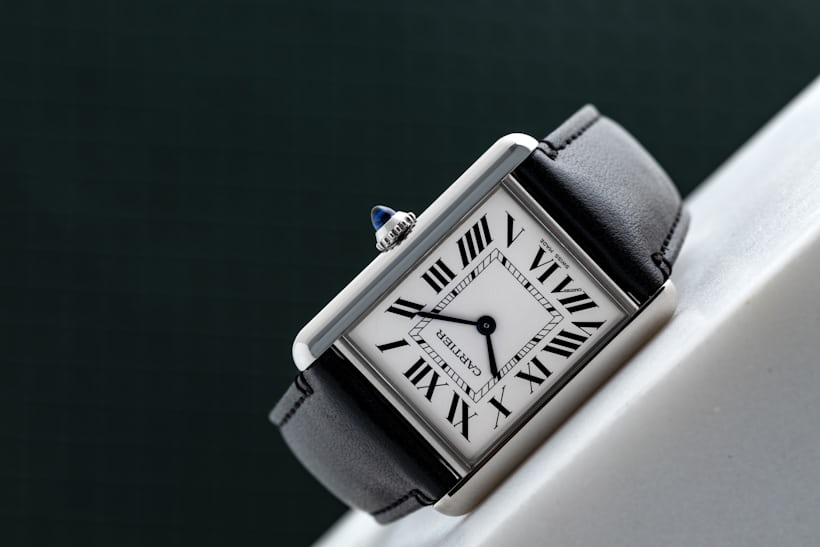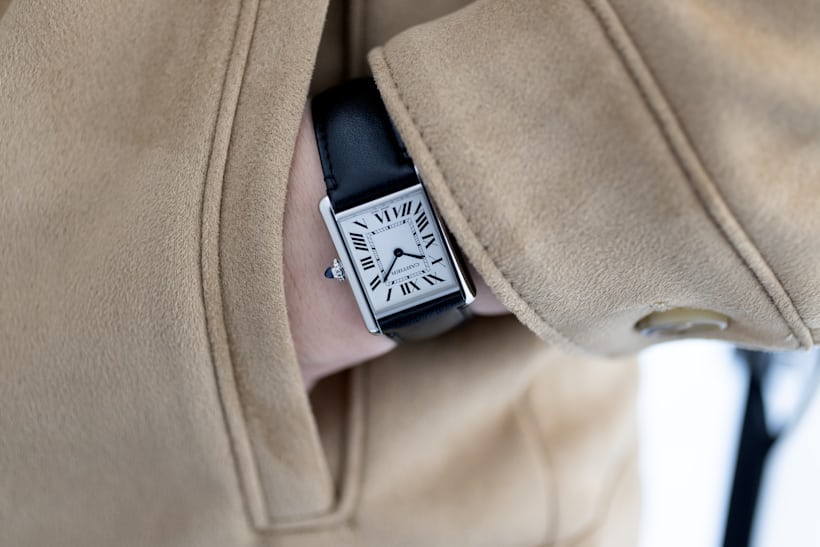A Week On The Wrist: The Cartier Tank Must ‘SolarBeat’
It’s one of the most surprising watches from Cartier this year, but how does the Tank SolarBeat stack up against a century of Tanks?
Originally published by on HODINKEE, August 10th 2021
Talking about, and writing about, and reviewing, the Cartier Tank – pretty much any Cartier Tank – is not the easiest thing in the world because after a hundred or so years of Cartier Tanks, not only has much of what can be said, been said, you’re also talking about something that is as much of a cultural institution as it is a watch. You might as well try to critique the Mona Lisa, or Queen Elizabeth II, or Jack Daniels Tennessee Whiskey, or a Brooks Brothers button-down collar shirt – you can do it but the sheer inertia of your subject means you are no more likely to affect the course of your subject through history than a remora is likely to alter the course of a whale shark.
However, every once in a while there is an event in the life of such icons, that opens a window of opportunity for looking at what seemed hopelessly fossilized in Cultural Significance, with fresh eyes. In the case of the Cartier Tank, this happened earlier this year at Watches & Wonders, when Cartier introduced the Cartier Tank SolarBeat. I don’t generally know know what Cartier is going to do from one year to the next (although for a few years there, it was better than even odds that you were going to get a mystery tourbillon) but I certainly wasn’t expecting a solar powered Tank watch.
However, there it was. Now, after a hundred years plus, the Tank has become not just one of the most iconic watches of all time, it’s also become one of the most knocked-off watches of all time. I often wonder just how many knock-offs there have been – it must easily be in the thousands, and of those thousands, a mighty many have been quartz. And some of those have even been solar-powered quartz.
The new Cartier Must watches are a pitch-perfect shoutout to the originals.
Cartier’s done plenty of quartz watches and plenty of quartz Tank watches, but for some reason, I never suspected they might do something solar. My first reaction, if I’m honest, was apprehension. I try to keep personal preferences out of the equation when I write about watches. All criticism has to balance personal tastes against objectivity – you might prefer Italian to Provençal cuisine but if you can’t write about both, and lots more besides, you’re not much use as a restaurant critic. And I love the Tank, so my first reaction to the news and the pictures was apprehension.
The Cartier Tank’s history is part of every watch enthusiast’s basic education (or at least, by God, it should be). Louis Cartier was lucky enough to be a little long in the tooth for front line duty, but he did see his share of action as a driver and according to Francesca Cartier-Brickell’s The Cartiers, he claimed that it was on a visit to the front lines that he got the idea for the Tank watch.
Renault FT tanks, 1918. The Tank that inspired the Tank. Image, Wikipedia
The Tank is called the Tank because it looks like a tank – specifically, the Renault FT, which military historians often call the first modern tank. It had a fully rotating turret, and on each side of the hull, an enormous set of caterpillar treads that projected well beyond the front and back of the vehicle. These treads would become the inspiration for the brancards on each side of the Tank watch, which act as lugs and which are the attachment points for the strap. A prototype of the first Tank, the Normale, was supposedly given to General John “Black Jack” Pershing, who was the commander of American forces in Europe during the war.
Tank Louis Cartier, 1920
There is an extant picture of Pershing wearing what looks a lot like a Tank but the story remains unverified, although definitely possible. In 1919, however, the Tank Normale was released commercially – it was a special order and just six were made. And, in 1921, a version of the Tank with elegantly rounded brancards was sold for the first time. That’s the watch that became known as the Tank Louis Cartier.
For most of its history, the Tank remained a pretty exclusive watch. As a rule, the three boutiques in London, New York, and Paris didn’t keep them in stock. They were made to order and until the family withdrew from the business, small production numbers were the rule.
In the 1970s all that changed with the introduction of the Must de Cartier Tanks. Must de Cartier was democratic luxury – the model was high design, low cost, and mass appeal, which was completely new territory for Cartier. It was also part of a larger revolution taking place in the luxury industry, where brand cachet and prestige began to move to the foreground.
Quartz was a natural part of that transition – easier to produce than mechanical movements, accurate, and undemanding to own, they became part of not just the watchmaking vocabulary at Cartier, but in the industry as a whole and especially for what used to be called “dress” watches, they were a great way for luxury watch brands to not just stay in the game, but stay healthy.
A word about the competition. Interestingly enough, there isn’t very much. None of the top-tier fine watchmaking brands do a solar quartz watch (at least not that I’m aware of) and while there are certainly quartz watches from some of the major luxury fashion brands, I can’t think of a solar quartz model from any of them either (Dior, for instance, or Gucci, or Chanel – indeed, the tendency in recent years has been for so-called fashion brands to explore higher-end mechanical models). I think perhaps some of the keenest competition is actually from Cartier itself – the new Must Tank quartz watches with colored dials are an alternative, or for that matter, a vintage Must de Cartier Tank.
We said earlier that the Tank Louis Cartier is one of the most knocked-off watches of all time. With any really classic design there is a risk that as time goes by, the ubiquity and popularity of a design can seem to verge on self-parody – almost as if the next latest version of a watch is a knockoff of the design by the brand itself. I’ve never felt that about the Tank Louis Cartier, and I think my biggest fear was that it would feel like Cartier basically copying Cartier – that it would feel like an illustration of a Tank Louis Cartier, rather than the real thing.
It did not. It didn’t feel like a compromise at all. Technical watchmaking at Cartier has never, historically, been something celebrated for its own sake. It’s always part of a desire to produce an overall aesthetic effect, and that’s true from simple wristwatches like the various Tank models, all the way up to the ingenious mystery clocks. In the case of the SolarBeat, the photovoltaic technology and decade-and-a-half battery life are interesting in themselves, but you’re not particularly aware of them when you’re wearing the watch, which is the beauty of the whole thing.
If you already own a Tank Louis Cartier, this is a great weekend or casual alternative, but you certainly don’t need to own one in precious metal to have a ton of fun with the Tank SolarBeat. It’s every inch as elegant a version of the classic design as anything in precious metal, and you certainly don’t feel like you’re missing out on something when you wear it. Even as a stand-alone watch, it’s probably the most elegant set-it-and-forget-it watch out there. Far from a compromise, it’s an almost irresistible value proposition – sixteen years of uninterrupted, trouble-free beauty in one of the great classic watch designs of all time.
For full specs, pricing, and availability, check out our Introducing post from Watches & Wonders 2021.
Update: Cartier says that all the Tank Must watches, including the SolarBeat, will launch from September. Current pricing per Cartier is $2610 for the small model and $2740 for the large, updated 8/11.
Photography: Tiffany Wade, David Aujero
Get More Articles Like This in Your Inbox
We're constantly creating great content like this. So, why not get it delivered directly to your inbox? By subscribing you agree to our Privacy Policy but you can unsubscribe at any time.





